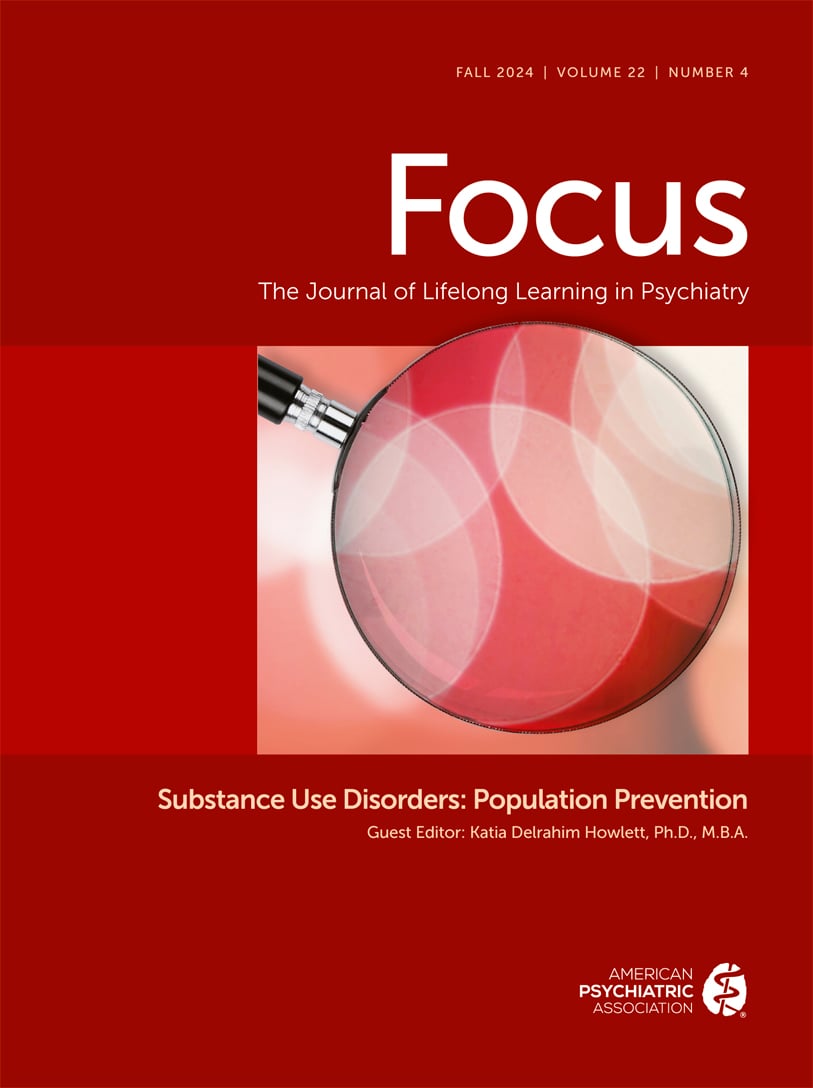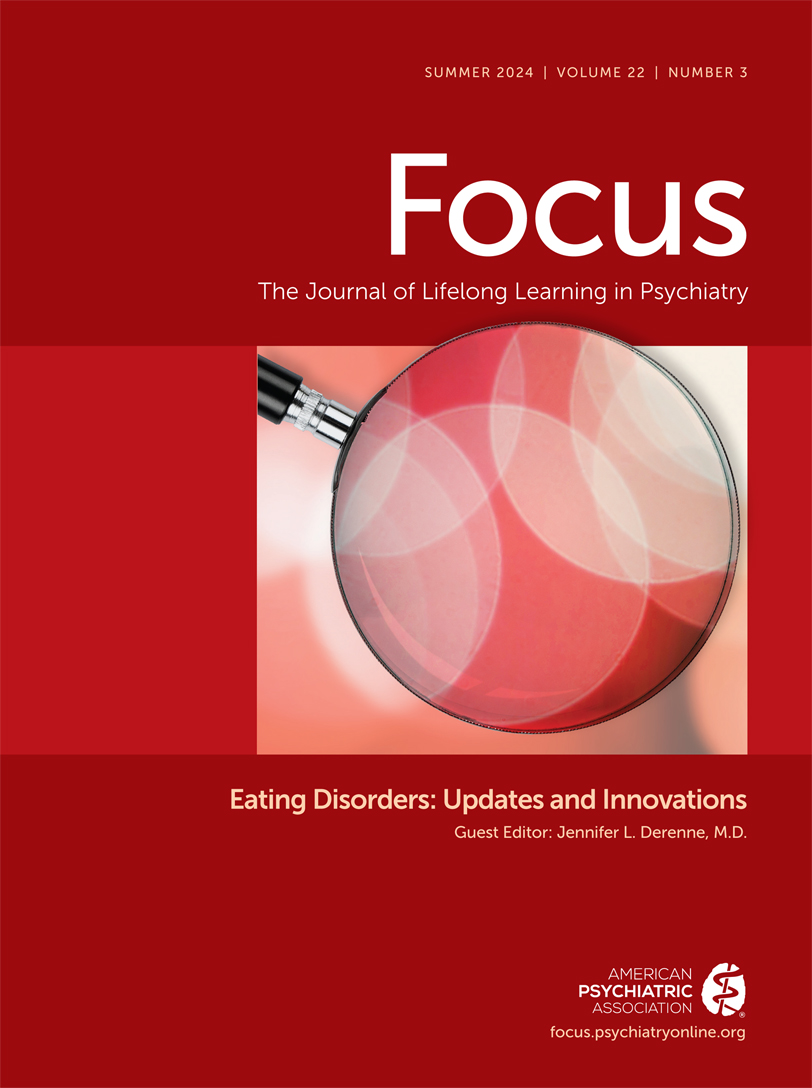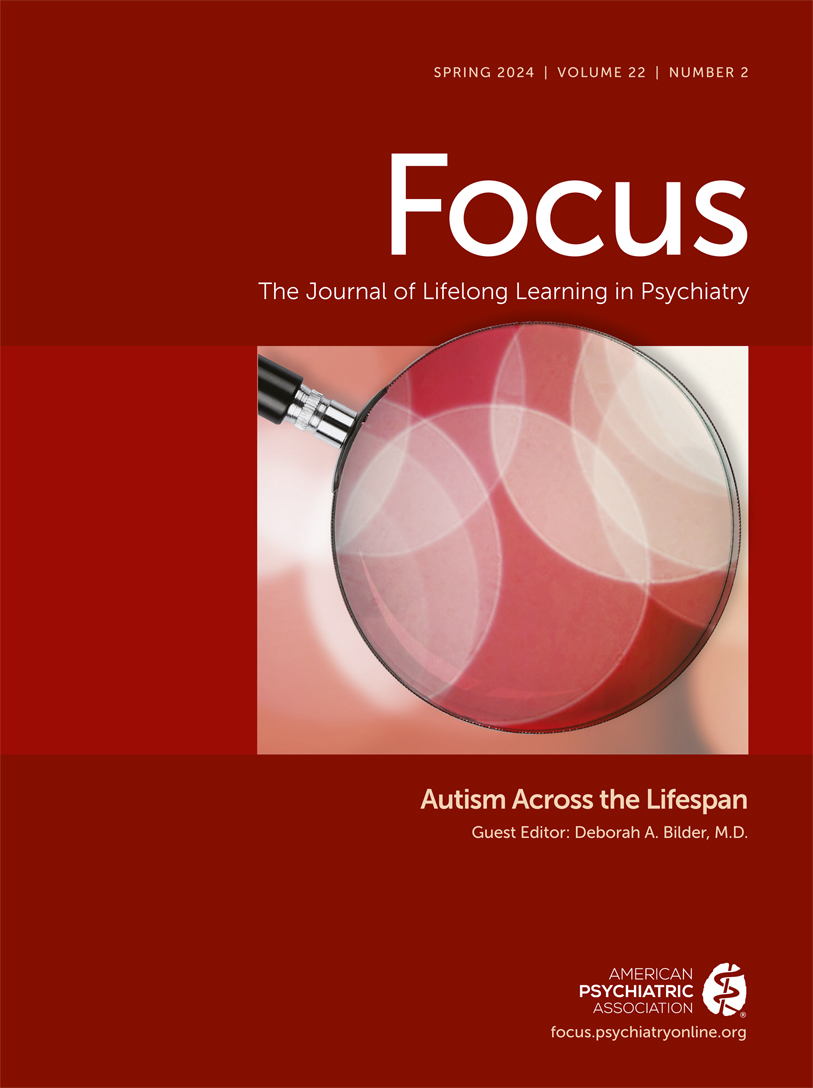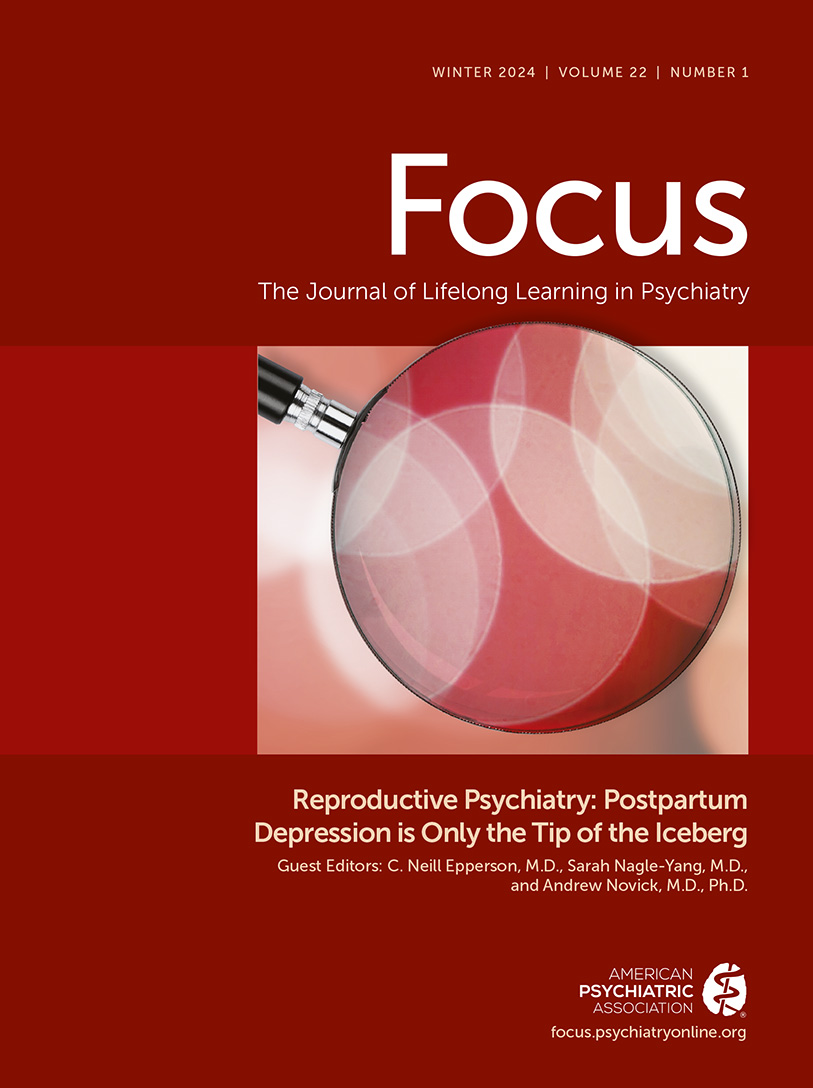Focus
- Volume 1
- Number 2
- April 2003
EDITORIAL
CLINICAL SYNTHESIS
Publication date: 01 April 2003
Pages115–122A wide variety of evidence-based psychotherapies and pharmacotherapies demonstrate efficacy and effectiveness in the treatment of substance use disorders. Among recent developments in behavioral therapies are expanded uses of contingency management and ...
https://doi.org/10.1176/foc.1.2.115REVIEW
Publication date: 01 April 2003
Pages125–146Substance-related disorders are common and cause significant medical, social, and psychological problems among users and those around them. This DSM category comprises a protean set of clinical syndromes, with the different substances exerting various ...
https://doi.org/10.1176/foc.1.2.125INFLUENTIAL PUBLICATION
Publication date: 01 April 2003
Pages150–157Objective: The role of dopamine in the addictive process (loss of control and compulsive drug intake) is poorly understood. A consistent finding in drug-addicted subjects is a lower level of dopamine D2 receptors. In cocaine abusers, low levels of D2 ...
https://doi.org/10.1176/foc.1.2.150Publication date: 01 April 2003
Pages158–162Objective: This study sought to estimate the degree to which cannabis abuse is a risk factor for depressive symptoms rather than an effort to self-medicate depression. Method: Participants (N=1,920) in the 1980 Baltimore Epidemiologic Catchment Area (ECA) ...
https://doi.org/10.1176/foc.1.2.158Publication date: 01 April 2003
Pages163–170Objective: The prognostic validity of the DSM-IV diagnoses of alcohol abuse and alcohol dependence was evaluated by examining the 5-year clinical course associated with those diagnoses in a large group of predominantly blue-collar men and women. Method: ...
https://doi.org/10.1176/foc.1.2.163Publication date: 01 April 2003
Pages171–178Objective: The goal of this study was to compare brain volumes of alcoholic and nonalcoholic men and women and determine if the magnitudes of differences in brain volumes between alcoholic women and nonalcoholic women are greater than the magnitudes of ...
https://doi.org/10.1176/foc.1.2.171Publication date: 01 April 2003
Pages179–182New approaches to treating patients with combined mental illness and substance abuse continue to be developed. This rethinking of treatment is particularly important because of the acknowledged organizational barriers to effective management of persons ...
https://doi.org/10.1176/foc.1.2.179Publication date: 01 April 2003
Pages183–189Objective: The opiate antagonist drug naltrexone has been shown in a few studies with limited sample sizes to be effective when combined with psychosocial therapies for the treatment of alcohol dependence. The goal of this study was to obtain additional ...
https://doi.org/10.1176/foc.1.2.183Publication date: 01 April 2003
Pages190–193Scientific advances over the past 20 years have shown that drug addiction is a chronic, relapsing disease that results from the prolonged effects of drugs on the brain. As with many other brain diseases, addiction has embedded behavioral and social-...
https://doi.org/10.1176/foc.1.2.190Publication date: 01 April 2003
Pages196–204Objective. To evaluate whether attention-deficit hyperactivity disorder (ADHD) is a risk factor for psychoactive substance use disorders (PSUD), attending to issues of psychiatric comorbidity, family history, and adversity. Method. Using assessments from ...
https://doi.org/10.1176/foc.1.2.196Publication date: 01 April 2003
Pages211–212Testing for drug use has become increasingly common, not only in health care, but also in drug rehabilitation, in the military, at the workplace, after accidents and in the criminal justice system. Performance-enhancing drugs such as anabolic steroids, ...
https://doi.org/10.1176/foc.1.2.211Past Issues
View Issues Archive
Vol. 22 | No. 4

Vol. 22 | No. 3

Vol. 22 | No. 2
